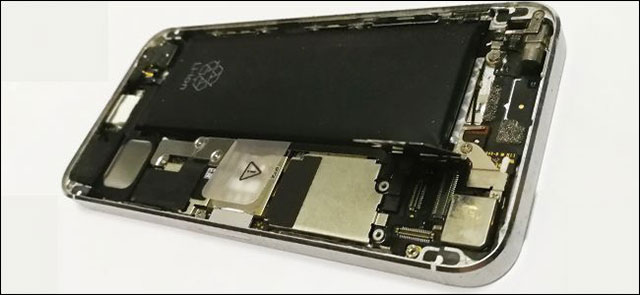What is solid battery? Will they solve the battery life problem?
Mobile technology is growing at a fast pace but battery technology still can't keep up. We have reached the limit where what lithium-ion or lithium-polymer batteries can do. The solution to this problem may be a solid battery.
What is solid battery?
In conventional battery design - most lithium-ion batteries - there will be two solid electrodes and electrolytes are liquid. Ion molecules switch from this electrode (ca-cath) to another electrode (a-note) when the battery is charged and vice versa when the battery is used. The electrolyte helps with transfer. If you see the battery being corroded or punctured, you will see that the 'acid pin' that flows is the electrolyte.
With solid batteries, electrodes and electrolytes are all solid, like metals, alloys or other synthetic materials. The word 'solid' can make you think about an SSD, but that's not the case. SSDs using flash memory cannot be moved, as opposed to regular hard drives that store data on magnetic disks rotating with a small motor.
The idea of solid-state batteries has been around for years, but its development is only at the beginning, still being used by electronics companies, car manufacturers or interested parties.
What is the benefit of solid batteries?
Solid batteries promise many benefits compared to their predecessors using fluids: it is longer battery life, faster charging and safer.
Solid batteries compress cathode, anode and electrolyte into 3 layers instead of leaving electrodes in liquid electrolytes. That means you can make the battery smaller, or at least thinner, while still having the same power level as a battery that uses liquid. The same solid-state device will be thinner, smaller and the battery will last longer with the same size.
Solid-state batteries are also safer because there are no toxic and volatile liquids, nor do they produce as much heat as regular batteries. If replacing it on electronic devices, even electric cars, charging time will be faster because ions move between electrodes faster.
According to the latest study, solid-state batteries can be up to 500% more common than batteries in capacity and charging, which is only 1/10 of the time.
What are the disadvantages of solid-state batteries?
Solid-state batteries are still just emerging technology, so the production will be very expensive, so current electrical devices for ordinary users still cannot use this type of battery. In 2012, an analysis from the University of Florida's Advanced Materials and Software Analysis department estimated that a solid-sized battery with a mobile phone would cost $ 15,000 to produce, a battery large enough to run a car. electricity will cost $ 100,000.

Currently, the production of solid-state batteries for phones will cost thousands of dollars
Part of the reason is the lack of economies of scale. Currently hundreds of millions of batteries are usually produced each year so their production costs are equally divided. Only a few companies and universities research solid-state batteries, so the cost per unit will be huge.
Another problem lies in materials. Metal, alloys for ordinary batteries are well known, but we still don't know which materials to use for electrolytes between electrodes. The research is still trying to limit the options but there needs to be enough data to be able to conduct synthesis and investment in production.
When can a solid battery be used?
Technology is still developing and the answer to this question is still a guess. But it is also good that many large companies are investing in researching this technology to bring solid batteries to the market. A car manufacturer said it would use the battery in 2023 but did not know what it would cost.
See more:
- The newer the phone, the weaker the battery
- Successfully developed bendable batteries like the backbone who open up new futures for technology devices
- The time of removable batteries on the phone has expired
You should read it
- ★ Don't, and exactly, never leave your phone down to 0% battery!
- ★ Experience choosing the best battery drill
- ★ Advantages and disadvantages of Li-Ion, Li-Po, Cell battery
- ★ How to recover and improve performance for battery-powered laptop batteries
- ★ How to charge, battery car questions when the car is dead